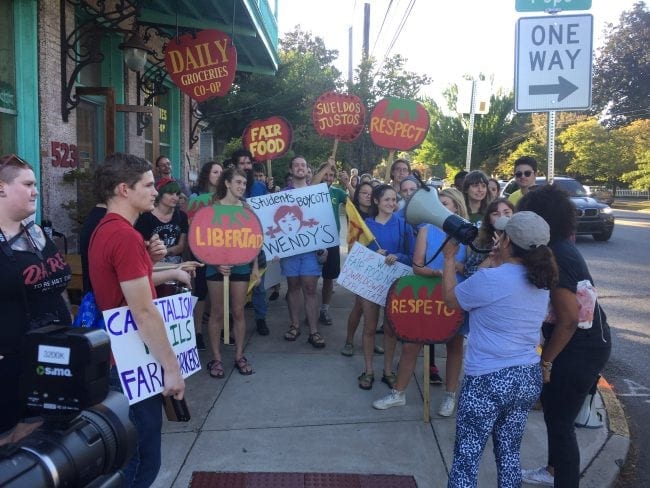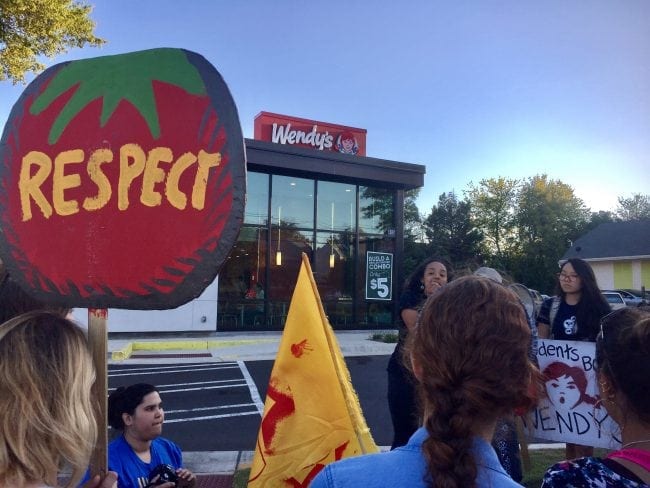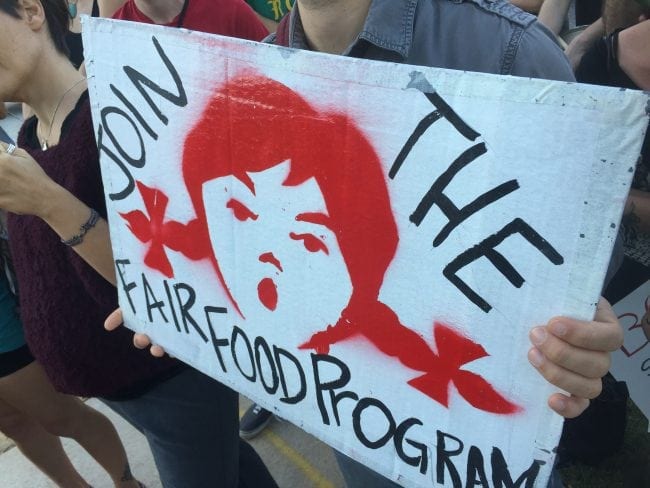
National boycotts against Wendy’s have made their way to Athens. Protestors say they are not happy about where some of Wendy’s ingredients come from.
Groups of people marched down Prince Avenue in an effort to boycott Wendy’s last night. This boycott stemmed from Wendy’s decision to stop buying its tomatoes from Florida and starting buying them from Mexico.
The boycotters were also protesting Wendy’s refusal to join the Fair Food Program. This program ensures that businesses involved provide “humane wages and and working conditions for the workers who pick fruit and vegetables on participating farms.” Those protesting are hoping to spread awareness of the treatment of tomato farm workers in Mexico. Protestors claim that Mexican workers aren’t getting fair wages and are being exploited for their labor.

“Investigative reports have uncovered the egregious conditions that exist there today and those conditions include: child labor, sexual harassment and even modern day slavery,” said Nely Rodriguez of the Coalition of Immokalee Workers.
Protestor Lori Hanna mentioned that businesses like McDonald’s and Walmart have already joined the Fair Food Program, and she hopes Wendy’s will follow suit. Last night’s boycott is one of several by the Alliance for Fair Food in partnership with the Coalition of Immokalee Workers, who started the Fair Food Program.

Heidi Schauer of Wendy’s corporate office reached back out to Grady and offered a statement about the farms that Wendy’s buys their tomatoes from.
“Our tomato purchasing, like that of most other national brands, moves seasonally throughout various growing regions of North America during the year. In the warmer months of the year, roughly June through October, we purchase tomatoes from a number of states in the U.S. like California, Georgia, South Carolina and Virginia. In the colder months of the year, we purchase tomatoes primarily from Mexico,” said Heidi Schauer.
Schauer also commented on Wendy’s corporation not being a part of the Fair Food Program.
“We have previously communicated our stance on the Fair Food Agreement – while we support the goals of any organization that seeks to improve human rights, we have preferred to rely on our suppliers to act as signatories and participants in the program. We believe that our Supplier Code of Conduct provides important standards in this area as we continue to promote responsible business practices in our supply chain.…most of our suppliers are in fact participating growers in the Fair Food Program.” said Schauer.
– By Cam Gaskins and Kendall Meissner






